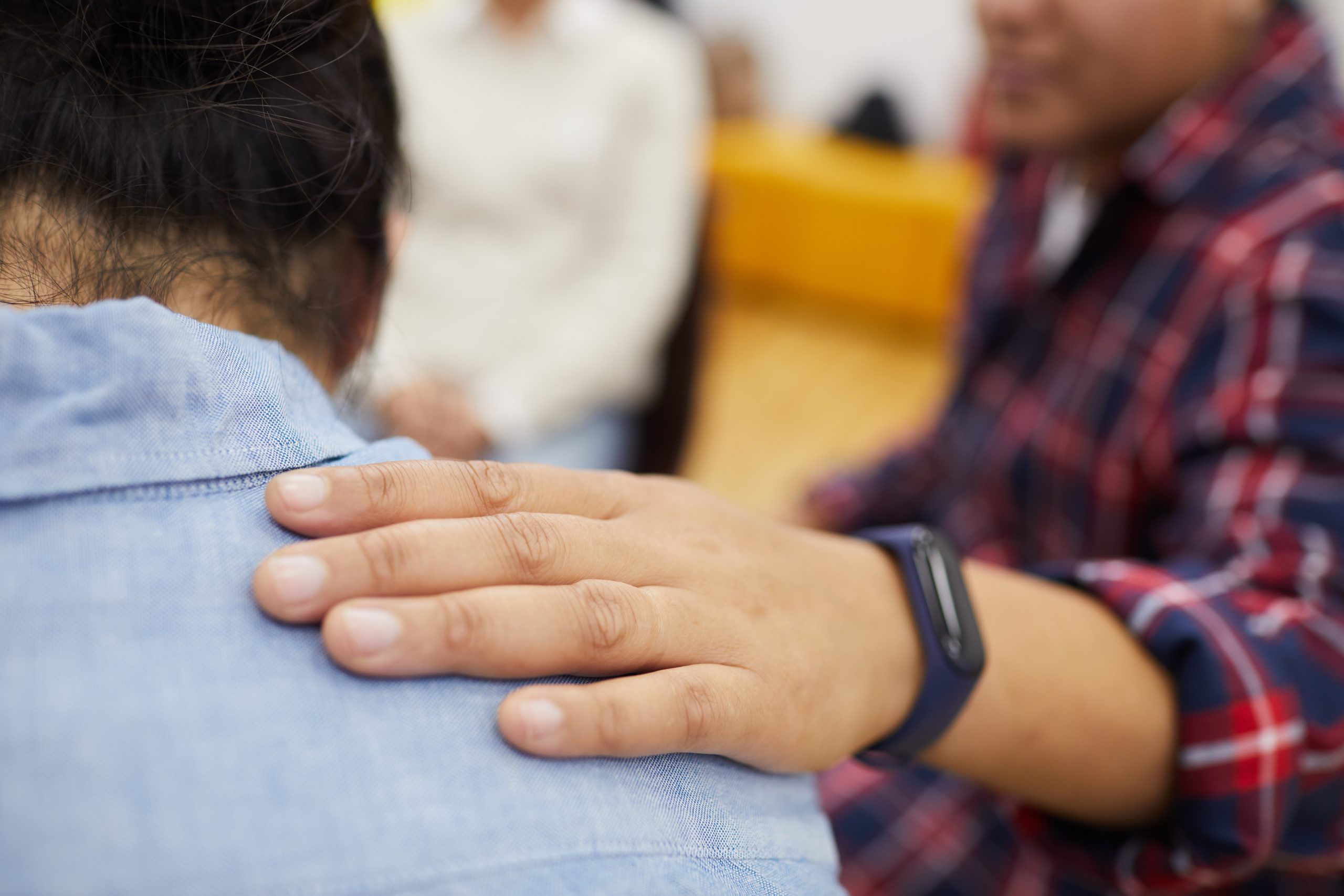
Blog: National Recovery Month feature blog - The opposite of addiction
Sep 23 2022

Regardless of how hectic his schedule becomes as an electrician’s apprentice, Dan blocks out every third Monday night and will continue to keep that slot open, he said, for the rest of his life.
On those nights, he volunteers at Bridge meetings—gatherings of clients at Regional Health Systems’ Strawhun Center in Merrillville, where they receive treatment for alcohol and substance abuse.
“It’s not in my nature to get outside my comfort zone to help people,” said Dan, a Northwest Indiana resident. “But when I do, it feels really good, and I know it makes me a better person.”
Regional Health Systems’ Bridge meetings help clients navigate the risky time between treatment and recovery, what Dan calls “idle time,” when a person trying to shake addiction often resumes abusing alcohol or drugs.
He brings valuable personal experience to the meetings. After years of steadily increasing alcohol use, he lost his job in 2010. Then Dan—only his first name is being used to protect his privacy—started drinking every day.
“It got to the point where I drank until I passed out and when I woke up, I had to have alcohol immediately,” Dan said. He landed in hospital detox wards three times in two years. On the third time, he took doctors’ advice and enrolled in Recovery Matters, Regional Health Systems’ residential addiction treatment program.
“I talked with my parents and felt that I owed it to them to at least try it,” he said. That was on Nov. 14, 2012. He has been sober since and has volunteered at Bridge meetings for more than five years.
Dan’s September visit to the Bridge group will be timely. It coincides with National Recovery Month, when the Substance Abuse and Mental Health Services Administration promotes and supports “new, evidence-based treatment and recovery practices, the nation’s strong and proud recovery community and the dedication of service providers and communities,” according to SAMHSA’s website.
At Bridge meetings, Dan personifies those concepts. Every session brings a new group of people waging the fight against addiction. His role is to demonstrate and explain how he managed to stay sober immediately after inpatient treatment, and beyond.
Dan and other Bridge volunteers do that by offering a brief summary of their journeys then sharing their ideas on what worked for them. Afterwards, they answer questions participants have written on slips of paper and tossed in a basket.
Success comes down to three elements, Dan said: going to meetings often; getting and utilizing a sponsor; and having a plan.
“What we try to get in their heads,” he said, “is you need to hit the ground running.”
Dan remembered his first night in Regional Health Systems’ addiction unit was awkward and nerve wracking, “but I was so beaten down at that point that I was desperate,” he said. He prayed and when he woke up the next morning, his obsession with drinking had dissolved. He said he felt at peace.
“For a person like me to feel comfortable in a place like that was eye-opening,” Dan said. Over the next few weeks and months, he valued the highly structured, productive routine that is part of the treatment regimen. He also found Alcoholics Anonymous’ complementary approach suited him well. He gained a thorough understanding of alcoholism—he called it “a crash course”—especially from those people who fell from recovery.
Dan’s volunteer effort at Bridge group meetings began when a counselor asked him to attend. While that work might have seemed awkward for him at the time, it aligned with his Alcoholics Anonymous practices.
“When the hand of Alcoholics Anonymous reaches out, you don’t slap it away,” he said. “You need to be there and step up.”
He found that his presence at Bridge meetings helps others, which is rewarding, and helps him stay sober.
Dan said he has used the AA program to deal with every aspect of his life. Since taking that approach, his sobriety has followed a path he’d been told about when starting with Alcoholics Anonymous: Recovery is progressive. In the same way a person’s life deteriorated while abusing alcohol, it will improve when they stay sober.
When he was drinking, he said, he would have been happy with any lousy job that would have allowed him to keep drinking. Now, Dan has plans to advance through a career.
He’ll wrap up his electrician’s apprenticeship in a few months, then has his eyes on becoming a foreman or general foreman.
“All I can say is that I’m pleased with how Regional structured the program and how they gave me that education,” Dan said. “Without that, it would have been a fourth trip to the hospital. I know that this works. If you follow the directions that they lay out, it’s foolproof.”
More information on Regional Health Systems’ comprehensive treatment options

Sep 23 2022

Sep 19 2022